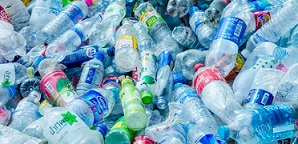Unilever Trials Circular Technique for Pet Plastic Recycling – A new method of recycling PET plastic is being trialled by global consumer goods company Unilever, with the aim of eventually recycling all waste PET back into high grade food packaging – Unilever Trials Circular Technique Pet Plastic Recycling - Arhive
Unilever Trials Circular Technique Pet Plastic Recycling Unilever Trials Circular Technique Pet Plastic Recycling Unilever Trials Circular Technique Pet Plastic Recycling Unilever Trials Circular Technique Pet Plastic Recycling Unilever Trials Circular Technique Pet Plastic Recycling Unilever Trials Circular Technique Pet Plastic Recycling Unilever Trials Circular Technique Pet Plastic Recycling Unilever Trials Circular Technique Pet Plastic Recycling
Unilever Trials Circular Technique for Pet Plastic Recycling
By Kate Dickinson
 A new method of recycling PET plastic is being trialled by global consumer goods company Unilever, with the aim of eventually recycling all waste PET back into high grade food packaging.
A new method of recycling PET plastic is being trialled by global consumer goods company Unilever, with the aim of eventually recycling all waste PET back into high grade food packaging.
PET, or polyethylene terephthalate, is one of the most commonly used plastics for packaging, including drinks bottles, due to its strong, lightweight nature and thermostability. PET products are labelled as such with the use of the resin identification code #1, and are the most widely recycled plastic packaging material in Europe, with 1.9 million tonnes of bottles collected in 2016, according to the European PET Bottle Platform, a voluntary organisation that works to evaluate new PET production and recycling technologies.
However, Unilever claims that only around 20 per cent of the world’s PET bottles find their way to recycling. Moreover, demand for both PET and recycled PET is rising year on year, meaning the need for new techniques to maximise the value of recycled PET are required.
Currently, polyester fibre is the largest single market for recycled PET bottles. Standard recycling techniques involve shredding and melting down the post-consumer plastics, which result in a lower grade product not suitable for food packaging.
Now, Unilever has teamed up with Indorama Ventures, the world’s largest producer of PET resin, and Dutch startup Ioniqa, which has developed a new recycling technique for PET bottles which it says will produce a much higher quality output.
The technique, which has been through a successful pilot but still needs to be trialled at industrial scale, involves taking non-recycled PET waste, including coloured PET, and breaking it down to molecule level to separate out the colour and other contaminants. This can then be converted back into virgin grade raw material PET for food packaging, thereby creating a fully circular and potentially infinite recycling solution.
Tonnis Hooghoudt, founder and CEO of Ioniqa, said: “To scale up our unique solution for PET plastics, we are delighted to work together with partners like Unilever and Indorama Ventures. Through our collaboration, Ioniqa’s innovative technology can turn PET waste into a truly circular material that holds value after disposal by consumers, helping to clean up the planet.”
The technique will be tested at one of Indorama’s facilities. Group CEO at Indorama Aloke Lohia said the company was looking forward to working with Unilever and Ioniqa, adding: “Our approach is not limited to our own operations, but we take the entire supply chain into account, including what happens to our products after use. We therefore look forward to working closely with Unilever and Ioniqa to leverage this state-of-the-art technology that contributes to tackling the global issue of waste, and enables us to go beyond the role of a polymer manufacturer.
According to Unilever’s Chief Research & Development Officer, David Blanchard, Ioniqa’s technique could bring about a significant change in the plastics industry. He commented: “This innovation is particularly exciting because it could unlock one of the major barriers today – making all forms of recycled PET suitable for food packaging. Indeed, making the PET stream fully circular would be a major milestone towards this ambition, not just helping Unilever, but transforming industry at large.”
If the industrial scale trial is successful, it could represent real progress towards a circular plastics economy, given that the technique can be repeated indefinitely. However, there remains an urgent need to improve collection rates of PET bottles, in order to produce the quantity of post-consumer feedstock needed to satisfy demand.
